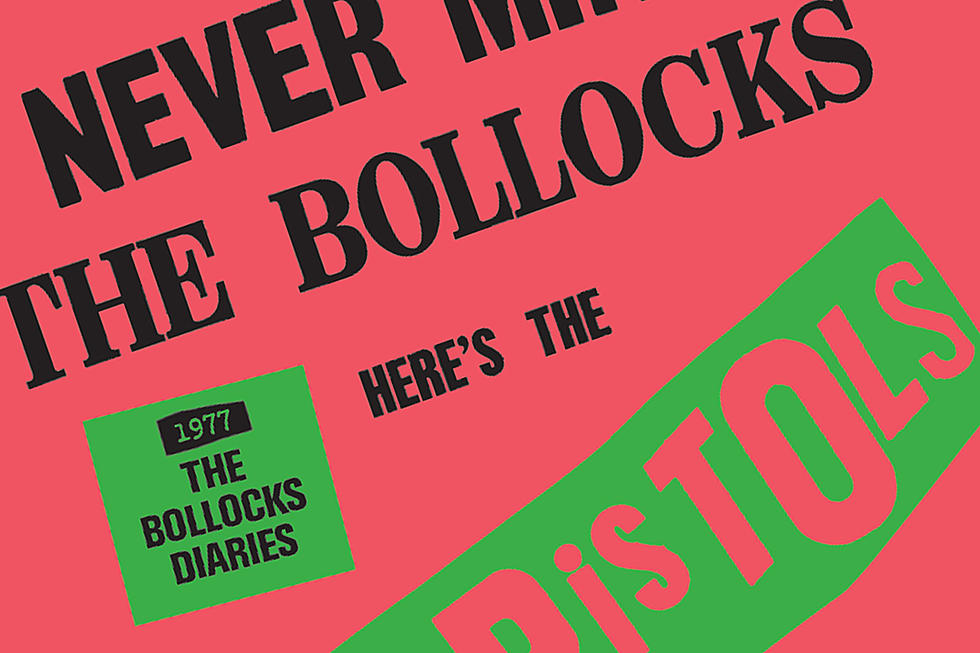
40 Years Ago: The Sex Pistols Crash the Queen’s Silver Jubilee
It was an affront of radical proportions, long before the Sex Pistols were even born. Emanating from the River Thames, the dregs of English society gathered one summer to torment the stiff, stately inhabitants of the Houses of Parliament on Thorney Island, striking terror and revulsion across their powdered mugs.
The year was 1859. London's exploding population had placed a strain on its crumbling sewage system, causing an excess of industrial and human waste. The flavor was so unbearable that Members of Parliament could hardly function and Queen Victoria and Prince Albert were forced to cancel their pleasure cruise. The malodorous summer would become known as the "Great Stink." Such dignified company would never experience anything so revolting from South England's largest body of water again.
Until 1977. There was a new Queen in Buckingham Palace, and although England's pipes were robust, society's wastes (and wasted) were again coagulating, this time ashore. The intransigent aroma of punk music would prove a much more lasting brand than last century's Summer of Stench. Its fare along the aristocratic embankments of the River Thames, on the other hand, would be more handily extinguishable.
Halfway into the year punk broke, the Sex Pistols had already looked about half broken. The band had been thrown off two record labels and the band's Anarchy tour had tailspun into a swelling blacklist and a series of cancellations.
But it wasn't just performance venues that refused them a platform. The band's second single, "God Save the Queen," had been shelved when an an ill-tempered scuffle between someone in frontman John Lydon's entourage and the friend of an A&E exec resulted in a terminated record contract.
The band's debut single "Anarchy in the U.K." had been released the year prior, and although it had succeeded in ruffling the precious feathers of English polite society, the apocalyptic idealism expressed within hadn't materialized. The opposite, instead, had seemed to come to pass.
Far from an anarchist's fantasy, the year commenced with a sober hymn of monarchical supremacy that one might have otherwise thought could only exist in Lydon's darkest night terrors. The year 1977 was ushered in under the glow of the Crown, as the year marked the 25th anniversary Queen Elizabeth II had taken the throne. The throne, naturally, basked in the occasion. The British press, naturally, fanned its prestige.
To honor the Queen's seated achievement, a full year-long festivity was decreed, rendering the year of 1977 the Queen's official Silver Jubilee.
The year that produced Eraserhead, Low, and The Shining was supposed to belong to the Queen. But the friction between the nihilistic enmity of the burgeoning punk movement and the gilded obedience symbolized by the Crown's ritual ceremonialism grinded like two sticks after a flame.
"If you're a punk rock performer, star even," John Cunningham would write in The Guardian later that year, "you can piss next to the fans in the loo and not get mobbed. Elvis couldn't have done that."
But it turns out nobody, not even Elvis, could piss next to the Queen of England. The Sex Pistols, needless to say, learned this the hard way at the peak of the Queen's Jubilee festivities.
Ever the shrewd stoker of publicity, Pistols manager Malcolm McLaren conceived a plan with Richard Branson, whose Virgin Records had recently become the third imprint in under a year to sign the band. Their stunt was a novel means of provoking publicity for the second stab at the "God Save the Queen" single. In a jeering display of monarchical mockery, McLaren would have the band ferry along the Houses of Parliament on the River Thames, a ceremonial fare Queen Elizabeth II was also expected to perform, and subject the statehouses to the treasonous anthems plaguing the Commonwealth.
Sure enough, two days before the Queen's liturgical cruise, the Sex Pistols, along with their management and label team, a bevy of fellow punkers, and a film crew were boarding a rented river boat, fittingly dubbed, the Queen Elizabeth.
Unmooring from Charing Cross Pier, the first half of the boat trip was lazy, jovial, and extremely drug-intensive as it sailed the Thames. Of course, once nearing Thorney Island, where the Houses of Parliament were situated, the collective spirit shifted from merrymaking debauchery to antagonistic revelry.
The band launched into "Anarchy in the U.K.," as it cruised up beside the regal island, as if initiating cultural coup d'etat on the Great Britain's governing institutions. Perfectly, the message was delivered with a vulgar sonic coarseness — even by Pistols standards. Although the band had indeed conducted a soundcheck beforehand, the problematic feedback shrieks stabbing from the speakers were welcomed rather than resolved.
Alas, it didn't take long for police vessels to surround the rogue Elizabeth. The maritime constabulary started to slowly surround the Pistols' crew before the band had completed the first song. Impressively, the intoxicated pariahs managed to barrel through “God Save the Queen,” “No Feelings” and “Pretty Vacant" uninterrupted. As a chance metaphorical gesture, the power was cut during "No Fun."
A number of Queen Elizabeth passengers were arrested after the vessel was forced back to shore, McLaren most memorably among them, purportedly shouting "you f---ing fascist bastards" while getting bloodied and hauled to a paddy wagon.
Photographer Dennis Morris would recall of the jubilee excursion, "This was one of their best gigs – they had time to play for once."
MacLaren and the Sex Pistols were pilloried for the stunt in ensuing news coverage. A job well done, in other words, as "God Save the Queen" skated to No. 2 on the UK Singles Chart.
Sex Pistols Albums Ranked in Order of Awesomeness
More From Diffuser.fm









